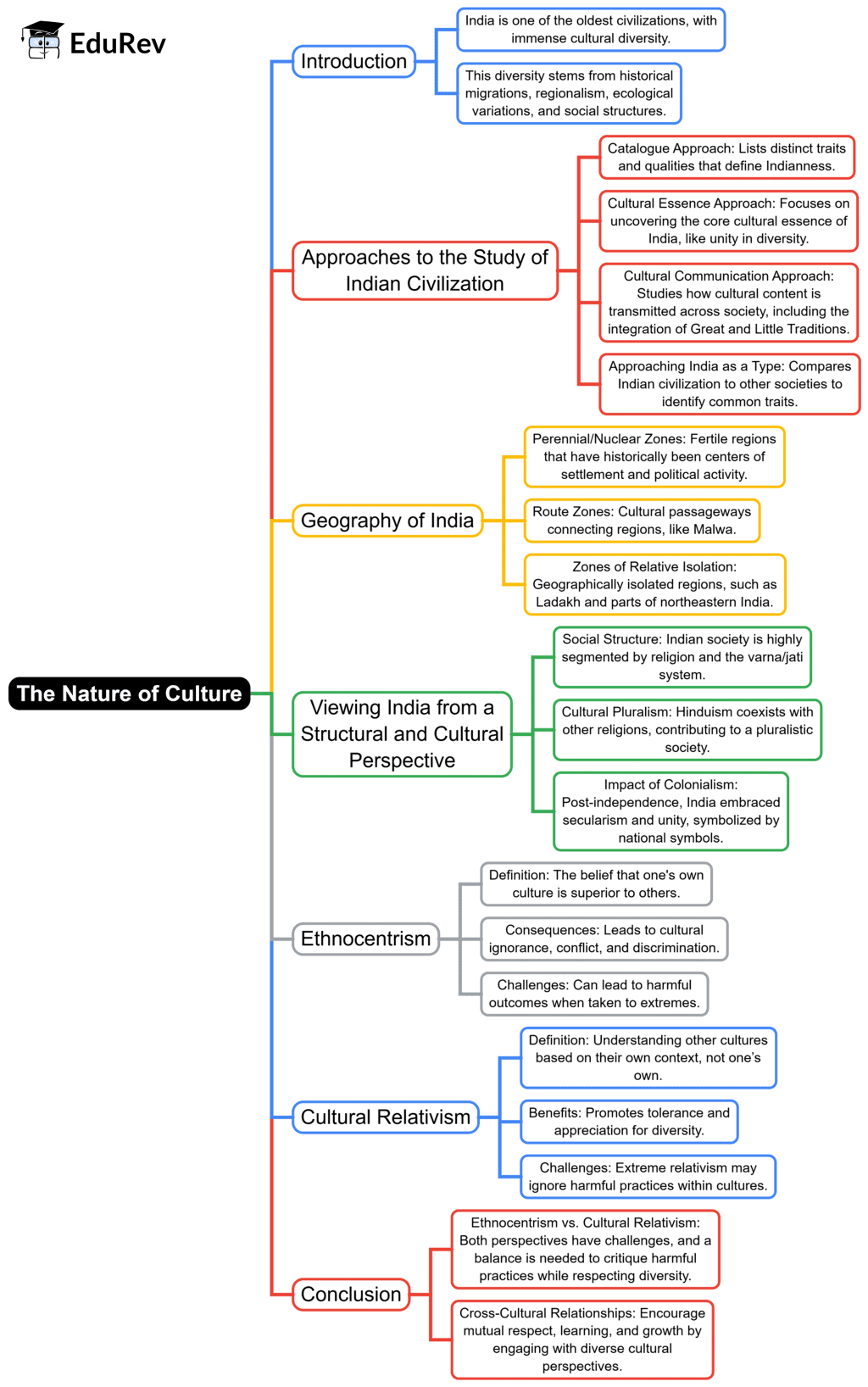UPSC Exam > UPSC Notes > Anthropology Optional for UPSC > Mind Map: Nature of Culture
Mind Map: Nature of Culture | Anthropology Optional for UPSC PDF Download

The document Mind Map: Nature of Culture | Anthropology Optional for UPSC is a part of the UPSC Course Anthropology Optional for UPSC.
All you need of UPSC at this link: UPSC
|
209 videos|299 docs
|
FAQs on Mind Map: Nature of Culture - Anthropology Optional for UPSC
| 1. What is the definition of culture in the context of UPSC exams? |  |
Ans.Culture refers to the shared values, norms, beliefs, customs, and practices of a particular group or society. In the context of UPSC exams, it encompasses various elements such as art, religion, language, and social structures that shape the lifestyle and identity of people.
| 2. How does culture influence social behavior and interactions? |  |
Ans.Culture significantly influences social behavior by providing a framework for acceptable conduct and communication within a society. It shapes individuals' perceptions, attitudes, and responses to different situations, guiding how they interact with others in their community.
| 3. What are the different types of cultures recognized in anthropology and sociology? |  |
Ans.Anthropology and sociology identify several types of cultures, including material culture (physical objects and artifacts), non-material culture (beliefs, values, and norms), high culture (elite cultural forms), and popular culture (mainstream cultural forms). Each type reflects different aspects of human life and society.
| 4. Why is cultural diversity important for society? |  |
Ans.Cultural diversity is crucial for society as it promotes creativity, innovation, and adaptability. It enriches social life by providing a variety of perspectives and experiences, fostering tolerance and understanding among different cultural groups, and enhancing problem-solving capabilities through varied approaches.
| 5. How can cultural heritage be preserved in a rapidly globalizing world? |  |
Ans.Preserving cultural heritage in a globalizing world can be achieved through education, community engagement, and legal frameworks that protect cultural sites and practices. Initiatives such as cultural festivals, documentation, and promoting local traditions help maintain cultural identity while adapting to global influences.
Related Searches





















